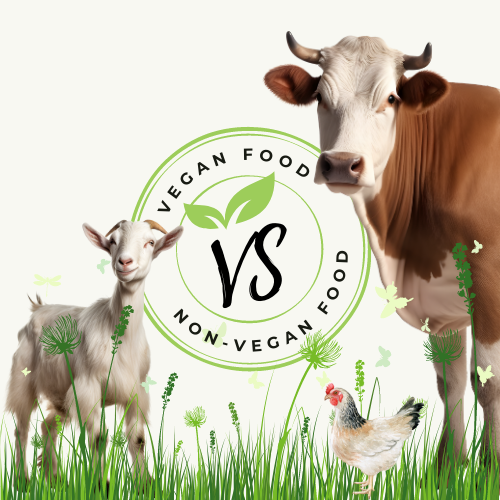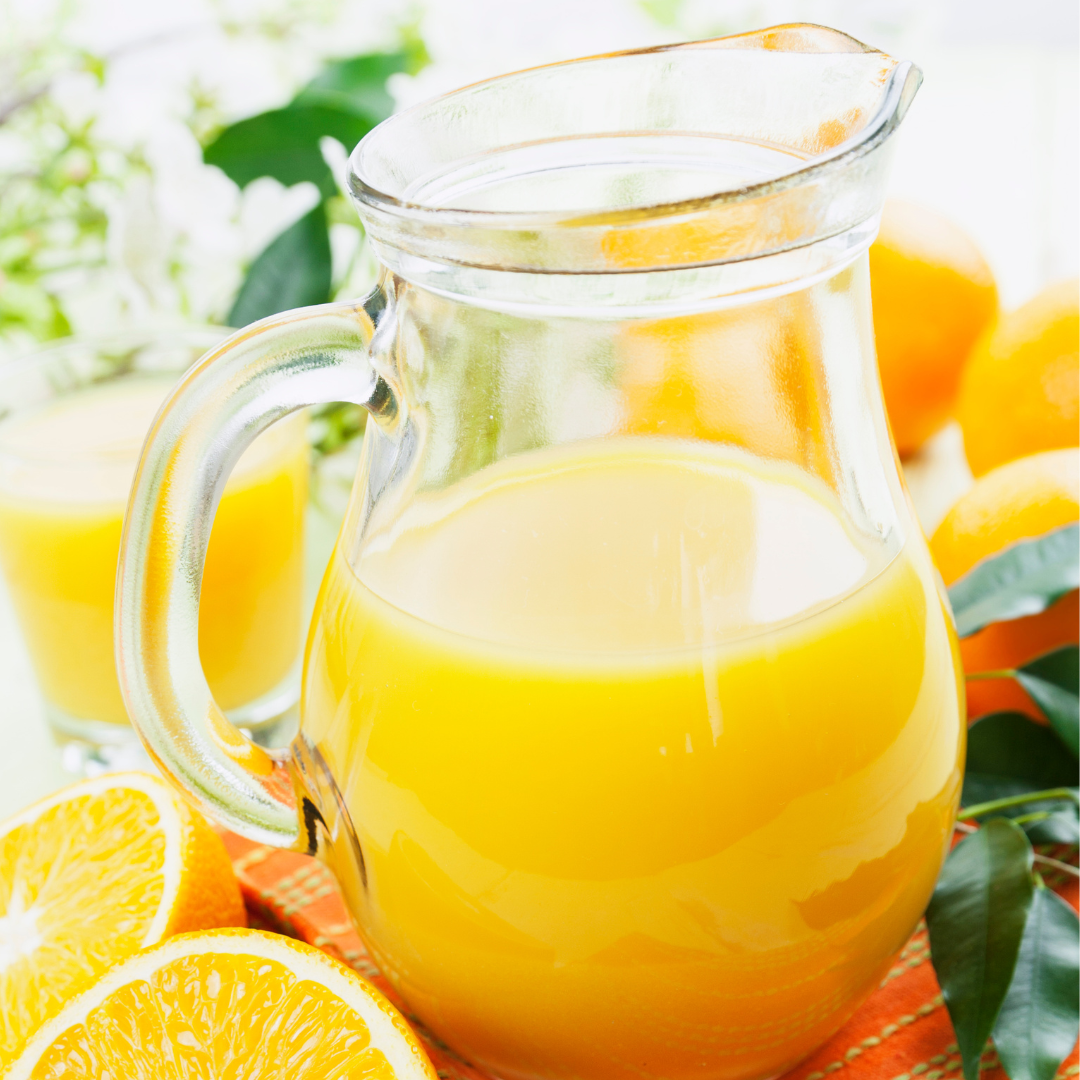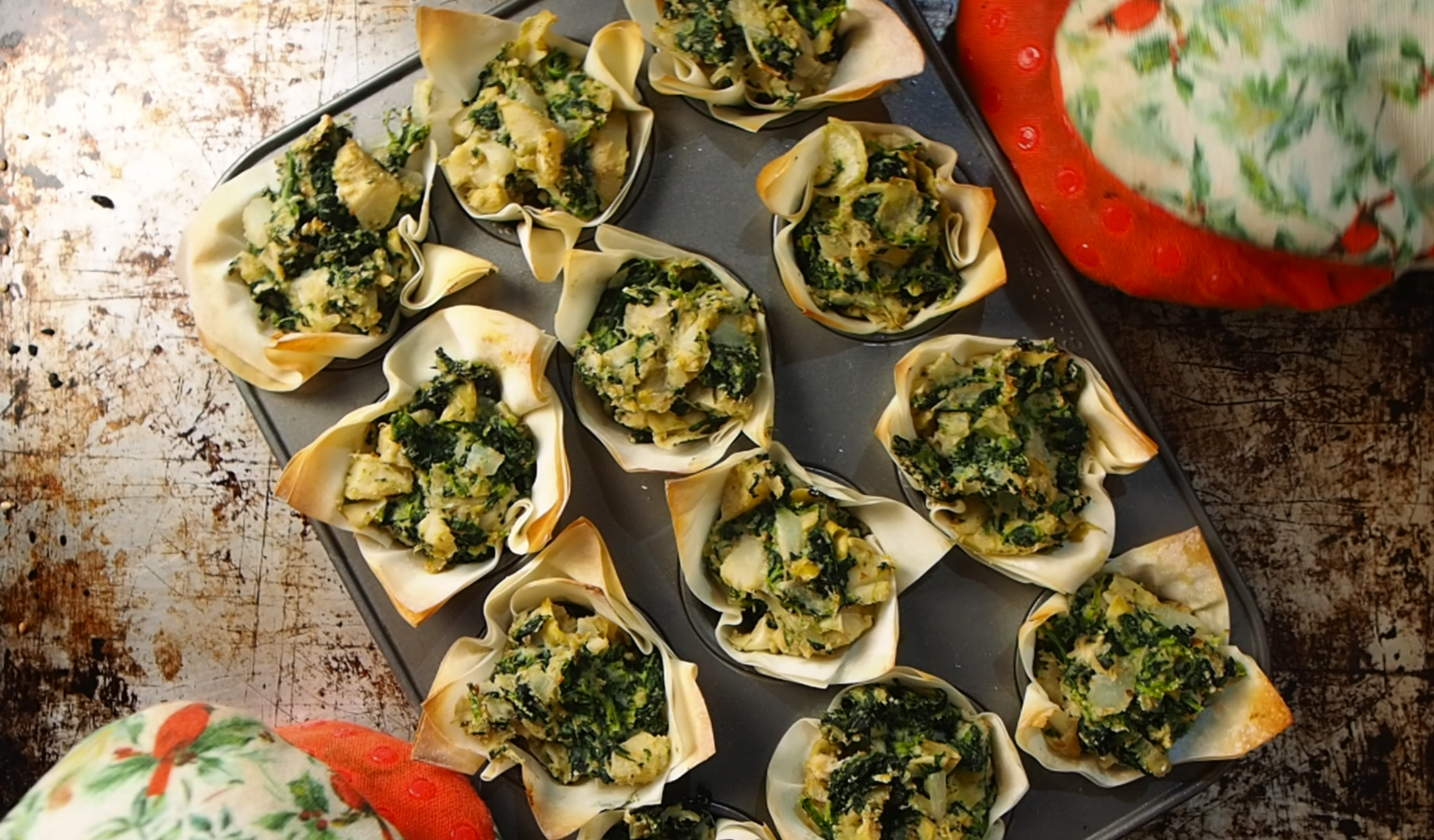What is the difference between vegan food and non-vegan food? The difference between vegan food and non-vegan food is simply that vegan food contains no animal products of any kind. That means no meat (including flesh, skin, bone, organs etc), byproducts or secretions of any sentient being that walks, crawls flies or swims.
On the one hand, it can seem a bit overkill the way some people, as well as marketing and packaging, will specify that something is vegan even when theoretically there shouldn’t be any animal products in it anyway.
Did you know you could buy vegan lettuce? It’s right next to the gluten-free cauliflower in the grocery store!
And it’s true it gets to be a bit much when people say things like vegan chickpeas and vegan apple juice. This language and labelling probably contribute to some of the divide between “vegans” and “non-vegans” – my food vs your food – even though many non-vegans eat “vegan” foods every day without even thinking about it. There are plenty of omnivores who eat oatmeal for breakfast, pasta salad at lunch, black bean chilli for supper or a few Oreo cookies for dessert who aren’t thinking “This just isn’t the same without the beef”.
On the other hand, it can be a very important distinction to make for those of us who follow a plant-based diet, not to mention those with serious allergies to animal proteins, eggs, honey and dairy.
While it might seem obvious to some people which foods are plant-based and which are not, the truth is, it’s hard to find a vegetarian salad at a restaurant these days, much less a vegan one. And any food that isn’t whole food can have all kinds of ingredients that you would least expect in them.
In fact, years ago I bought an olive-oil-based margarine assuming it was vegan, only to realise once I got home, that it contained fish oil.
Fortified fruit juices often contain added ingredients for flavour, colour shelf-life, cost and even “health benefits” that are not vegan-friendly, including fish oil and lanolin. You can read more about that in our post [Is Orange Juice Vegan?].
There are veggie burgers that claim to be plant-based on the packaging but actually contain dairy and/or eggs.
From table sugar and non-dairy creamers to some protein powders and some soy-based yoghurts and cheeses, there are all kinds of foods out there that you might assume are vegan but surprisingly are not.
There are also plenty of alcoholic beverages that are processed using animal products too. There is more info on that in our post about vegan wines and spirits, as well as a link to a pretty robust directory of vegan-friendly alcohol HERE.
At the end of the day, it’s always a good idea to read the ingredients on any non-whole foods that you buy, even if the label says vegan or plant-based.






